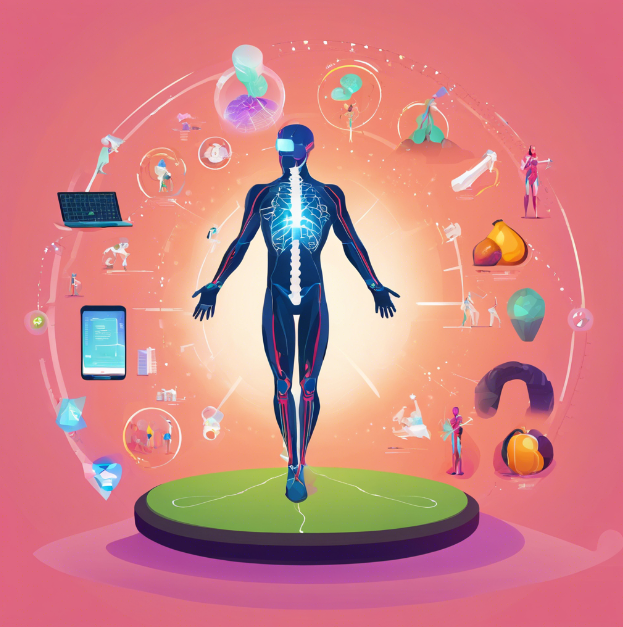The impact of the metaverse on physical health
- Arthur Berchet

- 13 jun 2023
- 2 Min. de lectura
Actualizado: 14 ago 2024
The metaverse is a technology that will become increasingly present in our lives in the coming years. As with any new development, it's important to assess the impact of this revolution on the people who will be using it.
Here, we're going to focus on the metaverse's impact on users' physical health. Indeed, there are various health downsides with the use of screens on a daily-life. But we will only see how can we use the metaverse in order to limit the negative impacts on health.
One of the main downside with the use of metaverse is that an excessive use of this technology could imply a sedentary lifestyle and could lead to health problems. Because if it becomes possible to meet other people without leaving home, then people will move less and walk less. And yet we know how important it is to exercise every day to avoid heart problems for example.
This phenomenon can also be associated with junk food and, ultimately, obesity. We can take as a way of example the INSERM research that has proven that children exposed to screens from the age of 2 have a higher-than-average body mass by the age of 5.
It's also worth remembering that advertising on these platforms can be particularly focused on unhealthy products such as junk food, tobacco and alcohol. And unhealthy diet and habits are serious risk factors for non-communicable diseases such as cardiovascular disease, diabetes and cancer.
On the other hand, we should also think about the consequences of the use of metaverse on children and teenagers. As we know, the brain is developing during this period of life and it has been proven that an excessive use of screens greatly affects this development. For example, the problem of lack of concentration, due to screens, is extremely problematic for children. It is an interesting paradox, because these children are generally able to stay focused for hours on these screens, but it's been proven that it is harder for them to stay focused in real life.
Moreover, we know that prolonged time in front of screens can impair sleep quality.
Blue light can cause fatigue, headaches and dry eyes. It also disrupts the sleep cycle, especially if used before bedtime.
For all these reasons, we should be very attentive to the outcomes of excessive use of metaverse to be sure that it will not threatened our health in a too dangerous way.
However, the World Health Organization points out the fact that we can use this metaverse to promote health. For example, this space can be used to advertise healthy food products rather than products that are harmful for our bodies. These ads can therefore be beneficial, as they promote a more virtuous lifestyle and encourage people to consume healthy products. And, as we said before, young people are likely to use this technology so they will often see this type of product and will be more inclined to consume it rather than turning to cheaper, more dangerous products.
And another interesting thing is the significant potential application of metaverse in the field of health care. For example, some of the most important applications are remote monitoring of patients needing intensive care, a better understanding of clinical outcomes...
Arthur Berchet

.png)





Comentarios